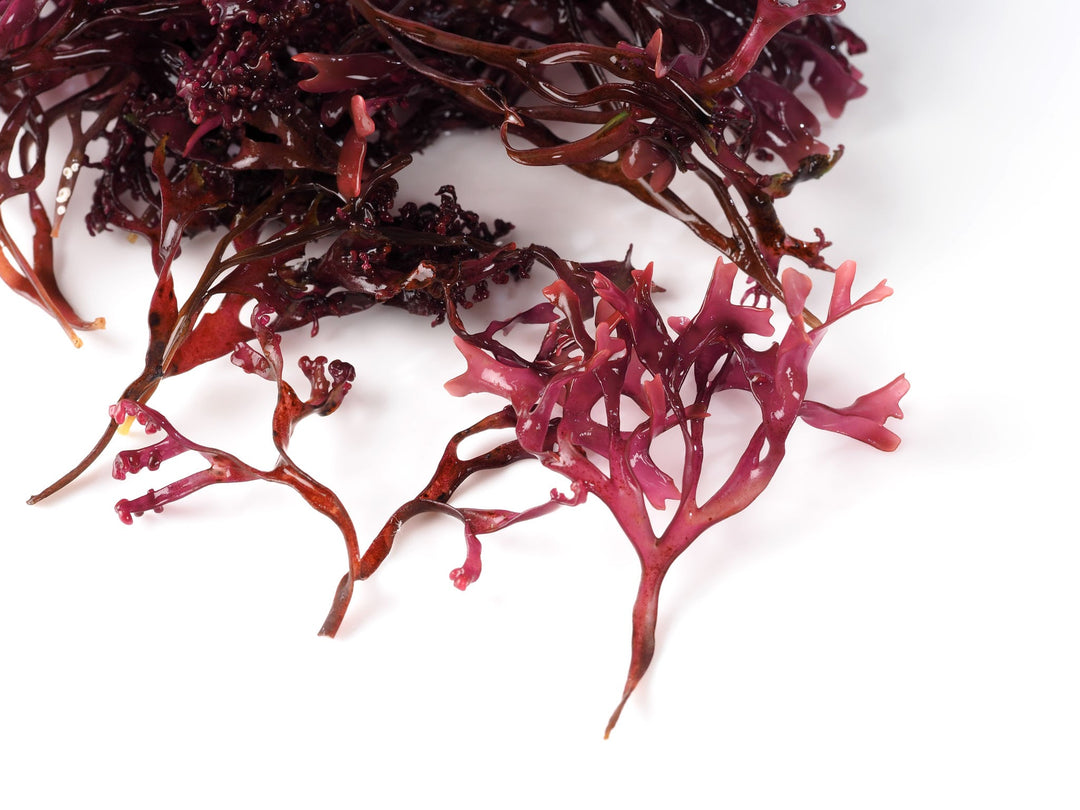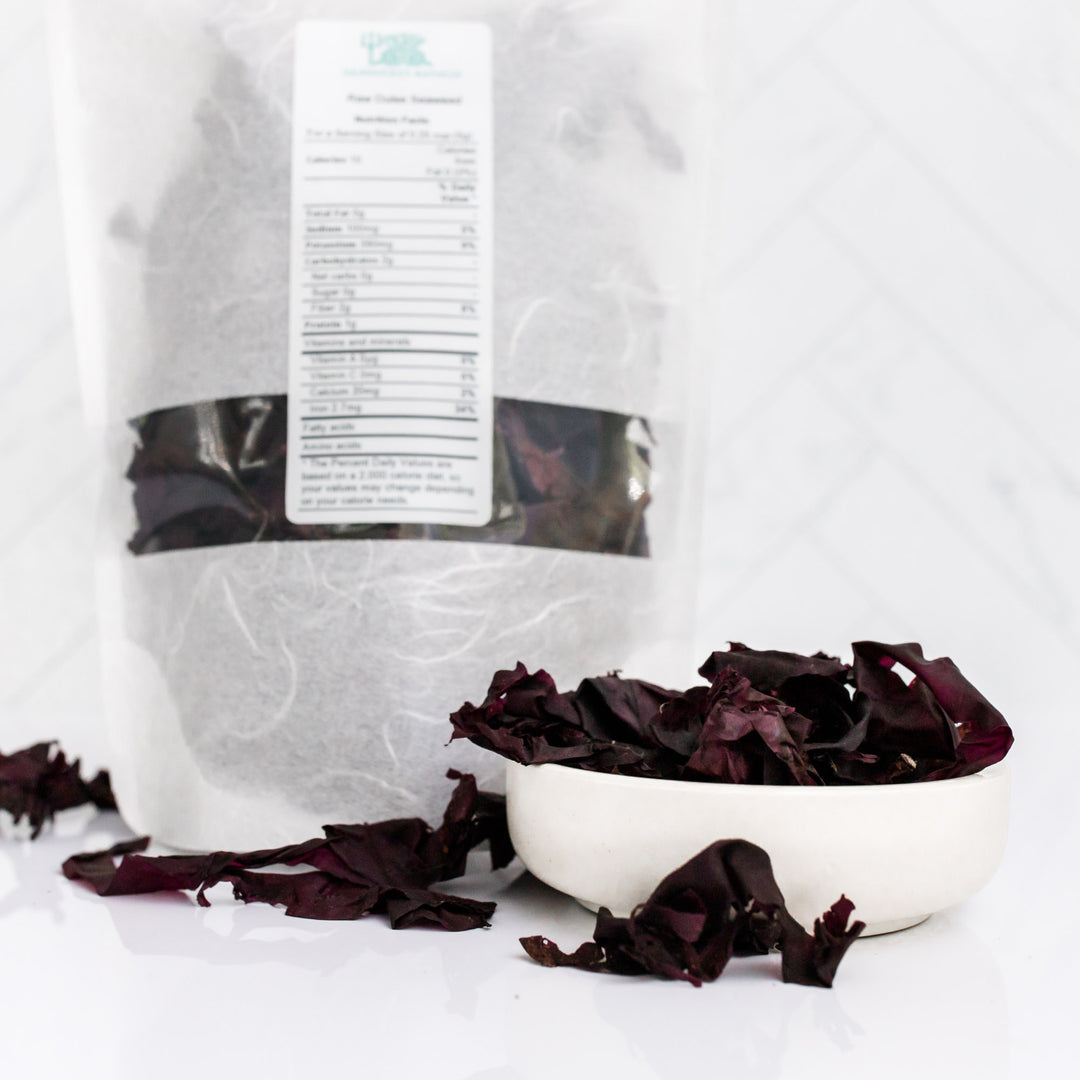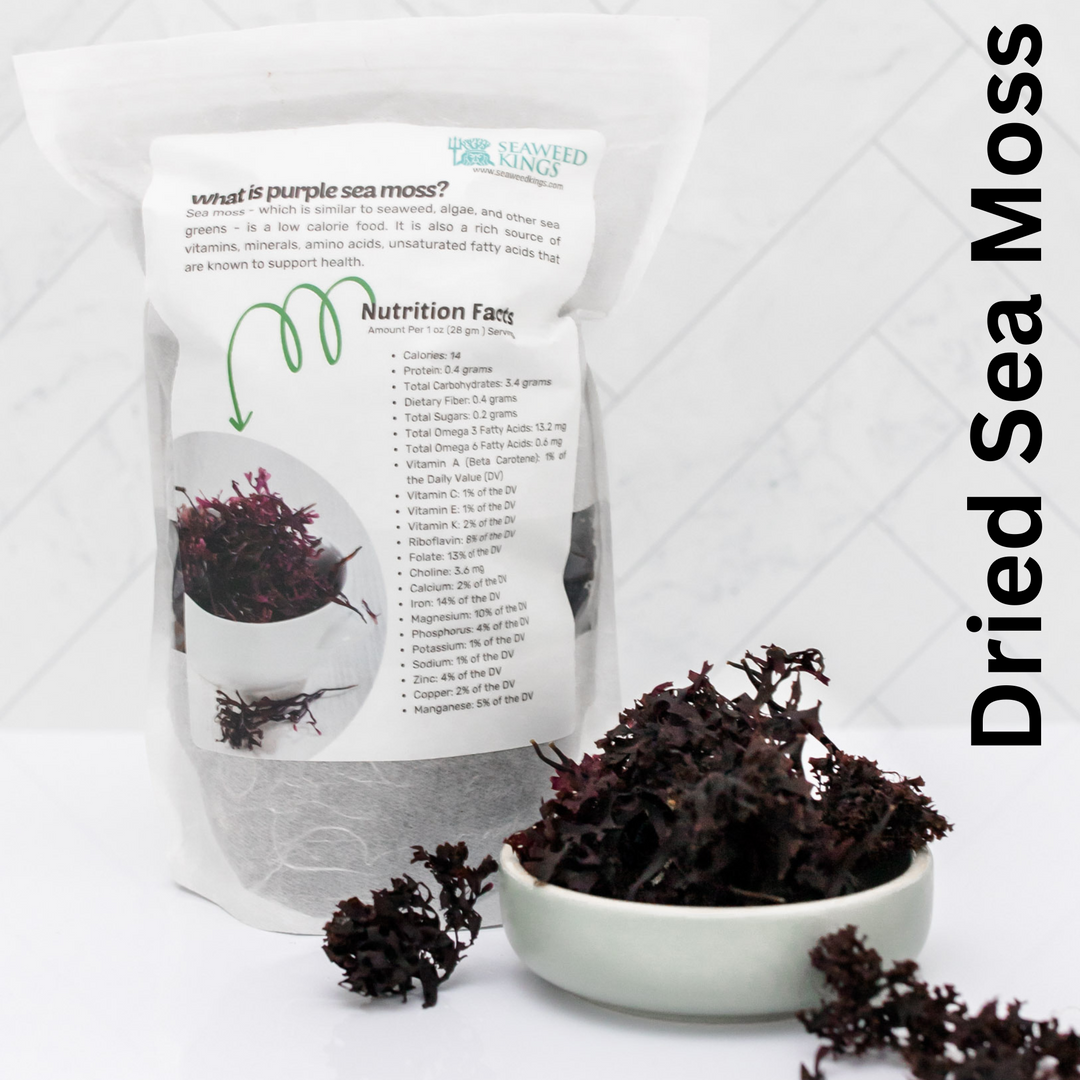Purple Sea Moss FAQ's - Seaweed Kings
1. What is the purple sea moss good for?
Purple sea moss, also known as Irish moss, is a type of seaweed that is considered to be a superfood due to its high nutrient content. It is rich in vitamins and minerals, including iodine, calcium, potassium, and magnesium, as well as antioxidants and anti-inflammatory compounds. Some people take purple sea moss for its potential health benefits, such as boosting the immune system, improving digestion, and aiding in weight loss. However, more research is needed to confirm these potential benefits.
2. What is the difference between purple sea moss and regular sea moss?
Purple sea moss and regular sea moss are both species of seaweed, but the difference lies in their color and mineral content. Purple sea moss gets its color from the presence of high levels of anthocyanins, which are pigments that give plants their red, purple, and blue colors. Regular sea moss, on the other hand, is typically green in color. The mineral content of each type of sea moss can also vary, with purple sea moss often having higher levels of certain minerals such as iron and magnesium compared to regular sea moss. However, the nutritional content of both types of sea moss is similar, with both being rich in vitamins, minerals, and other beneficial compounds.
3. Is purple sea moss safe?
Purple sea moss is considered safe when consumed in moderate amounts and as part of a balanced diet. It is a type of seaweed that is high in vitamins and minerals, and has been used for centuries as a food and medicine. However, consuming large amounts of sea moss or taking sea moss supplements can have side effects, such as digestive discomfort, allergic reactions, and interference with medication absorption. Additionally, it is important to source sea moss from a reputable supplier to avoid contamination with harmful substances, such as heavy metals or pollutants. As with any food or supplement, it is always best to consult with a healthcare provider before using purple sea moss to ensure it is safe and appropriate for you.
4. What are the side effects of purple sea moss?
Although purple sea moss is considered safe when consumed in moderation, some people may experience side effects when taking it. These can include:
-
Digestive discomfort: Consuming large amounts of sea moss can cause digestive symptoms such as bloating, gas, and diarrhea.
-
Allergic reactions: Some people may be allergic to sea moss and experience symptoms such as itching, hives, and difficulty breathing.
-
Interference with medication absorption: Sea moss can interact with certain medications, such as blood thinners and thyroid hormones, and interfere with their absorption and effectiveness.
-
Heavy metal contamination: Contaminated sea moss can contain high levels of heavy metals, such as lead and mercury, which can be harmful to health.
-
Iodine overdose: Sea moss is high in iodine, and consuming large amounts of it can lead to iodine overdose, which can cause symptoms such as goiter, hypothyroidism, and hyperthyroidism.
5. Should I take sea moss at night or morning?
The best time to take sea moss depends on the individual and the reason for taking it. There is no one-size-fits-all answer as to whether it is better to take sea moss in the morning or at night.
If sea moss is taken for its potential energy-boosting properties, it may be more effective to take it in the morning to start the day with increased energy levels.
If it is taken for its potential sleep-promoting properties, it may be more effective to take it at night to aid in getting a good night's sleep.
However, it is important to keep in mind that the effects of sea moss on energy and sleep have not been extensively studied, and more research is needed to confirm these potential benefits.
6. Does sea moss increase pregnancy?
Sea moss is a type of seaweed that is high in vitamins and minerals, and some people believe it can support fertility and increase the chances of pregnancy. However, there is limited scientific evidence to support these claims.
While sea moss is a rich source of vitamins and minerals that are important for overall health and fertility, including iodine, calcium, and magnesium, it is not a proven method for increasing the chances of pregnancy.
If you are trying to conceive, it is important to focus on overall health and well-being, which can support fertility and increase the chances of pregnancy. This includes eating a balanced diet, getting regular exercise, and managing stress levels.
7. is sea moss good for eyesight?
there is limited scientific evidence to support the claim that sea moss can specifically improve eyesight. More research is needed to determine the effect of sea moss on eye health.
8. Does sea moss help with dark circles?
There is limited scientific evidence to support the claim that sea moss can help with dark circles. Dark circles can be caused by a variety of factors, including genetics, aging, lack of sleep, and lifestyle factors.
While sea moss is a good source of vitamins and minerals, including Vitamin C and iron, which are important for skin health, there is no scientific evidence to suggest that consuming sea moss can specifically reduce the appearance of dark circles.
If you are concerned about dark circles, it is important to focus on overall skin health, which can support a healthy complexion. This includes drinking plenty of water, eating a balanced diet, getting adequate sleep, and avoiding habits such as smoking and excessive sun exposure.
9. How much sea moss can I take daily?
Always be mindful of how much sea moss you are consuming daily and stick to the recommended amount of 1 to 2 tablespoons or 4 to 8 grams. According to a study published in Environmental Science and Pollution Research Journal, taking 4 to 8 grams of sea moss a day does not pose a health risk.
10. Does sea moss reduce stress?
Stress reduction is a complex process that can be influenced by a variety of factors, including genetics, lifestyle, and environment. While consuming a diet rich in nutrients, including those found in sea moss, may be helpful in supporting overall health, it is not a guaranteed method for reducing stress.
If you are experiencing stress, it is important to focus on overall well-being, which can support stress reduction. This includes practicing relaxation techniques, getting regular exercise, eating a balanced diet, and managing stress levels.





Leave a comment